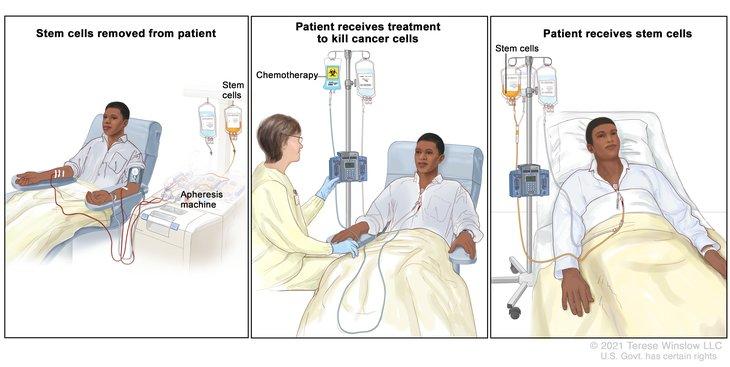Over the last three decades, advances in treatment and supportive care have translated into steady improvements in survival after hematopoietic stem cell transplantation (HSCT) given for patients with leukemia and other malignant and nonmalignant diseases. With larger numbers of transplant recipients surviving long-term, concern has turned to quantifying the late effects of this treatment, particularly total-body irradiation and long-term immunosuppression. Investigators in the Radiation Epidemiology Branch have an extensive history of collaborating with the Center for International Blood and Marrow Transplantation to evaluate risk factors for new solid malignancies and post-transplant lymphoproliferative disorders among allogeneic HSCT recipients. Studies focus on specific outcomes, such as melanoma.
For more information, contact Lindsay Morton.
Learn more about our research on second cancers among cancer survivors.
